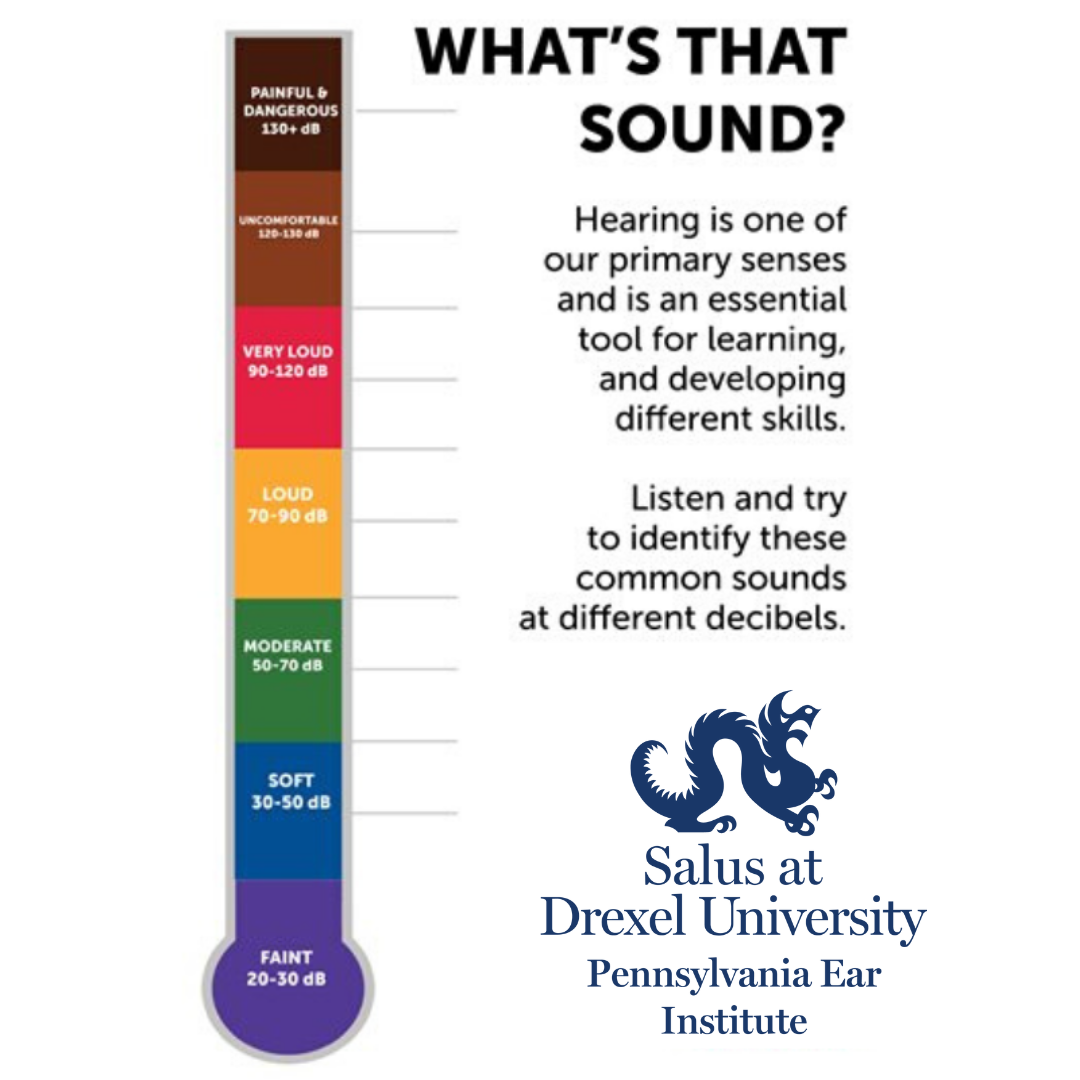Everyday Sounds Affecting Your Hearing
Sounds are all around us every single day. As we go on with our daily activities you may notice some sounds are louder than others. Some sounds are normal decibel levels while others can induce damage you may completely be unaware of.
According to the National Institute of Deafness and other Communication Disorders, sounds can be harmful when they are loud enough to damage structures in our inner ear. This damage can lead to permanent Noise-Induced Hearing Loss (NIHL).
 NIHL can be immediate or can gradually increase over time. Some noticeable signs include not being able to understand people when they talk in a noisy room or on the phone, or if some sounds seem distorted or muffled. Over time, NIHL may cause listening difficulties that need to be addressed with amplification such as hearing aids.
NIHL can be immediate or can gradually increase over time. Some noticeable signs include not being able to understand people when they talk in a noisy room or on the phone, or if some sounds seem distorted or muffled. Over time, NIHL may cause listening difficulties that need to be addressed with amplification such as hearing aids.
Causes of NIHL
Remember NIHL can be caused by a one-time exposure to an intense explosive sound such as a gunshot or firecrackers or by continued exposure to loud sounds such as power tools or concert music. It is important to be able to recognize when a sound is too loud. When sounds are below 70 A-weighted decibels (dBA), they are not likely to cause hearing loss even if exposed to the sound for an extended period of time.
Average decibel ratings of some familiar sounds:
-
Normal conversation: 60-70 dBA
-
Movie theater: 74-104 dBA
-
Motorcycles and dirt bikes: 80-110 dBA
-
Music through headphones at maximum volume, sporting events, and concerts: 94-110 dBA
-
Sirens: 110-129 dBA
-
Fireworks show: 140-160 dBA
Always remember the best way to reduce the risk of NIHL is to avoid noises that are too loud, too close, and long-lasting. If you suspect some degree of hearing loss, contact the Pennsylvania Ear Institute (PEI). Our expert audiologists will assess your hearing and make recommendations on how to address your hearing needs. For more information on PEI’s services or to make an appointment, call 215.780.3180.